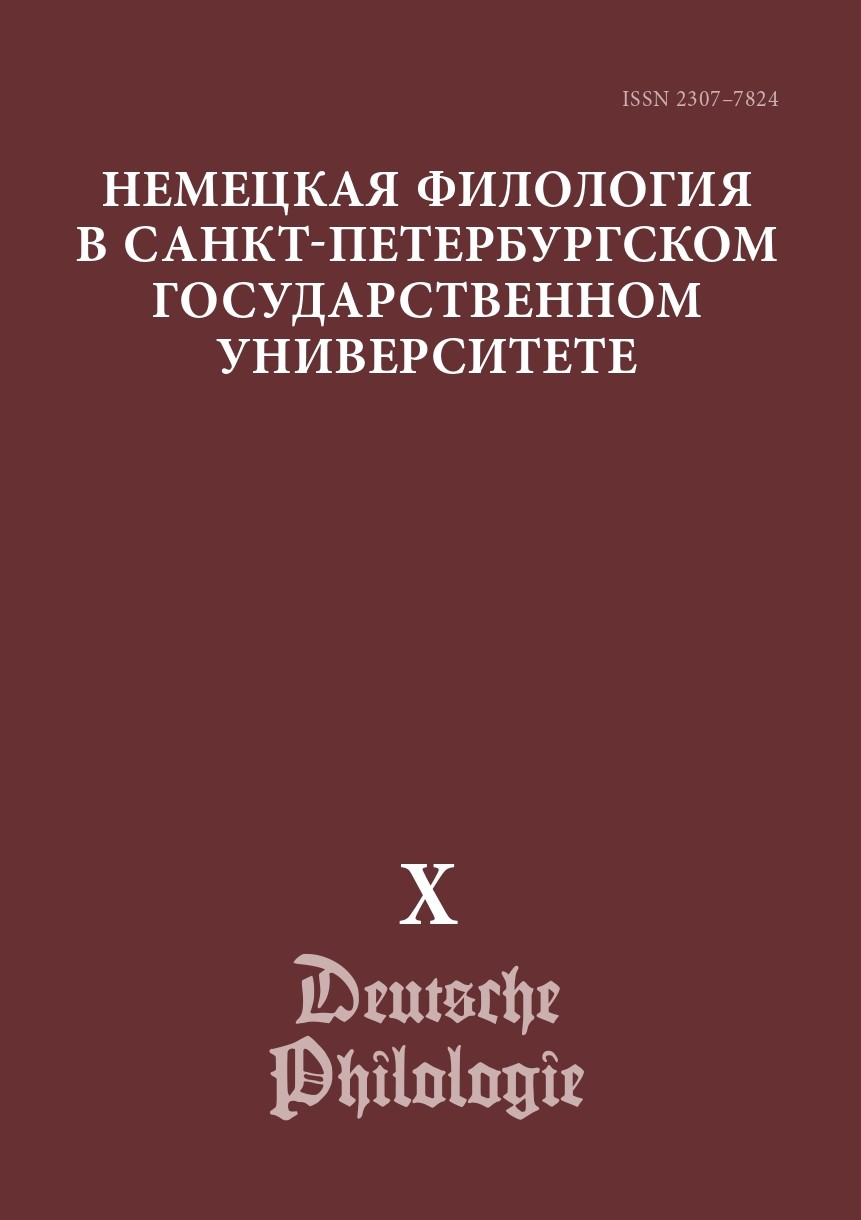GRAMMATICAL CATEGORIES AND THEIR ROLE IN THE SYSTEM OF GERMAN PRECEDENT NAMES
Abstract
The present article analyzes grammatical processes which occur inside the class
of German precedent names. Precedent names are classified as a part of the cognitive
base of a linguistic identity, research of which is an important task within the mod-
324
ern linguoculturological studies; this defines the relevance of the article. The approach
of V.G.Admoni is used to research the grammatical categories of precedent names,
in particular his types of grammatical meanings (logical-grammatical, communicative-grammatical and grammatical meanings of syntactical structures) as well as the
model of structure of grammatical categories are used. The research aim is to study
how the development of grammatical categories influences their separation into a
standalone lexical and grammatical class. The article dwells on grammatical peculiarities of the use of precedent names, most of which are common not for proper names
but rather for common names (use in the plural forms, use of different types of articles
with precedent names) as well as other peculiarities which are specific and unique
only for this class (instability of the position of grammatical category of gender). As
a rule, such peculiarities are additional markers of precedence of onyms as a result
of which these names receive a specific pejorative or meliorative facets as well as the
untypical character of comparison and metaphorical denotation are empasized. The
examined peculiarities attest the possibility to separate these linguistic units into an
isolated class.
Keywords:
theory of precedence, precedent name, grammatical categories, cognitive linguistics, semantical valency, media discourse, German language
Downloads
Downloads
Published
How to Cite
Issue
Section
License
Условия передачи авторских прав на статьи и рецензии, опубликованные в ежегодном периодическом издании «Немецкая филология» регулируются условиями Лицензионного Договора автора с Санкт-Петербургским государственным университетом. В соответствии с Лицензионным Договором опубликованные материалы находятся в открытом доступе, а авторам бесплатно предоставляется неограниченные возможности их распространения и самостоятельного архивирования.




